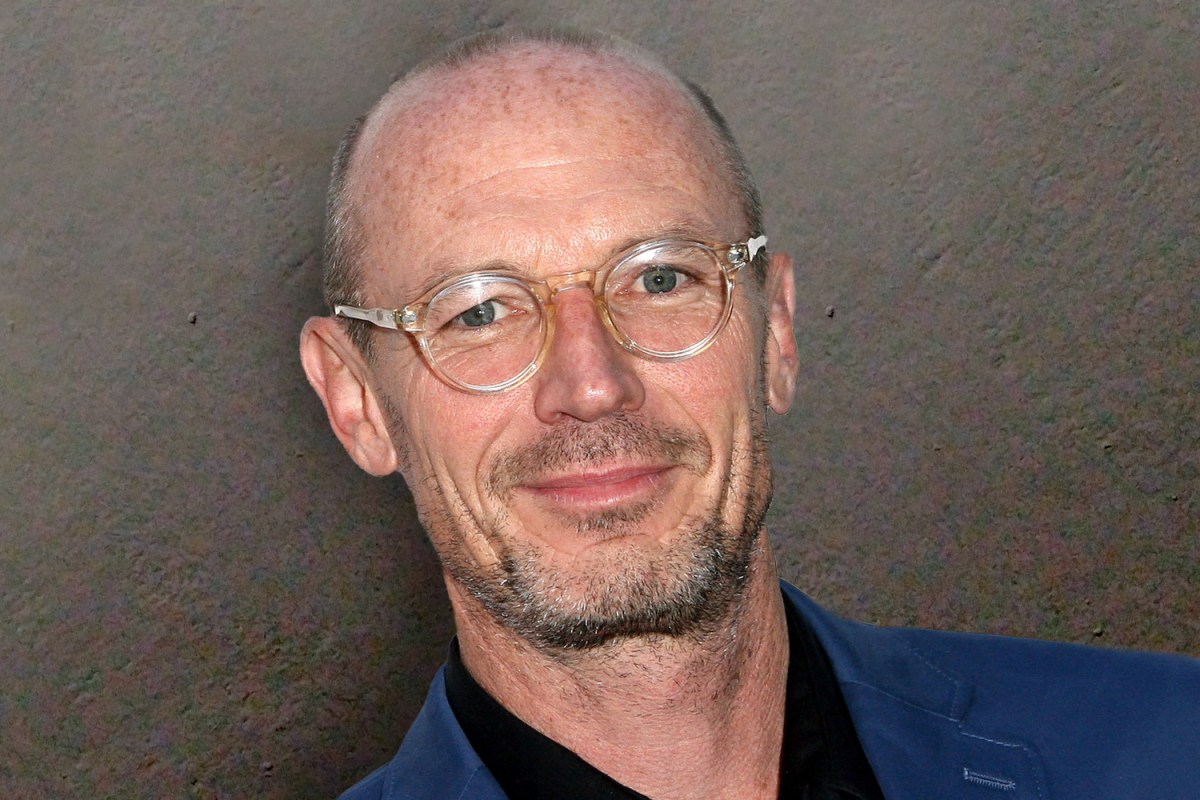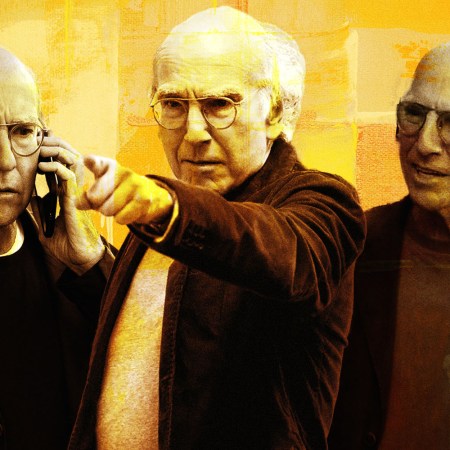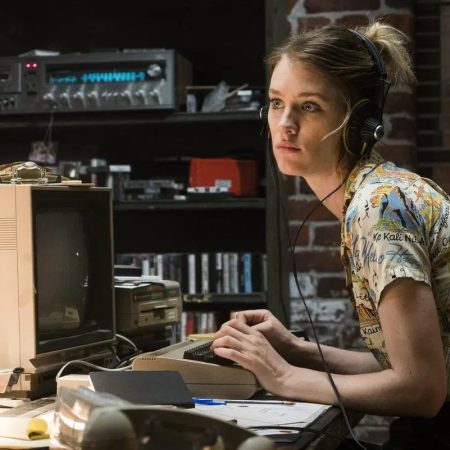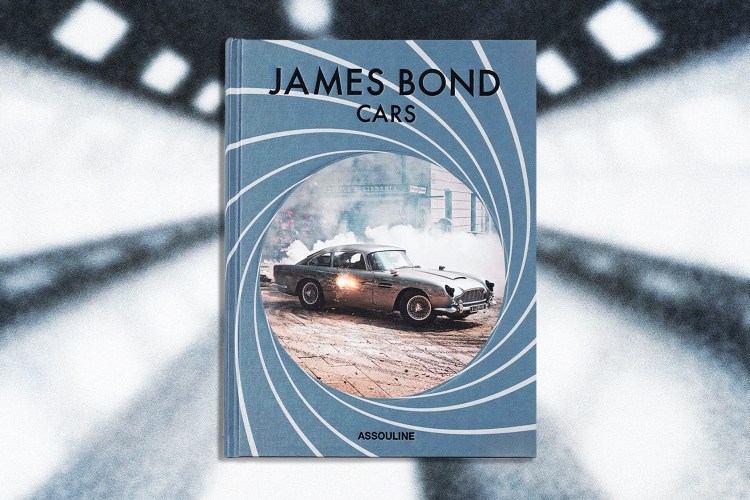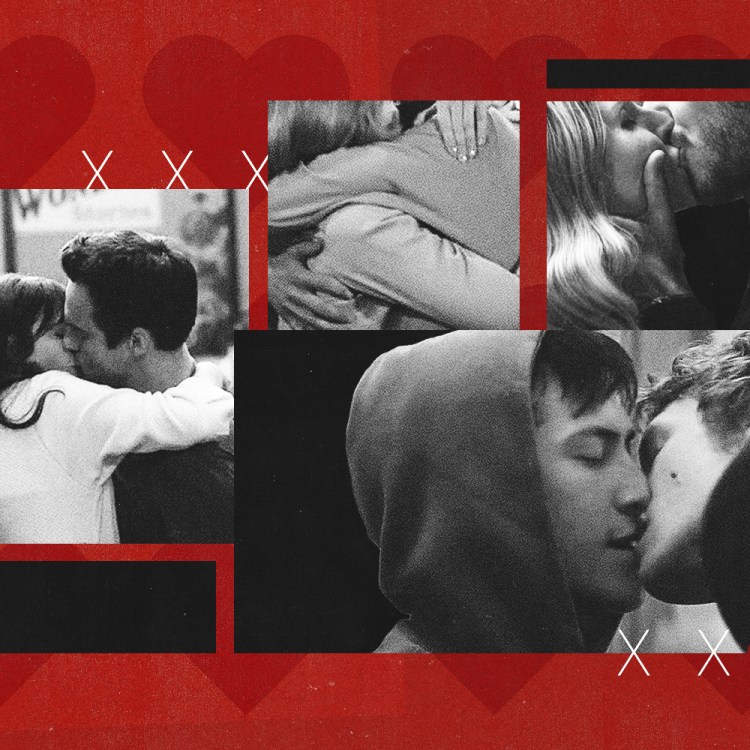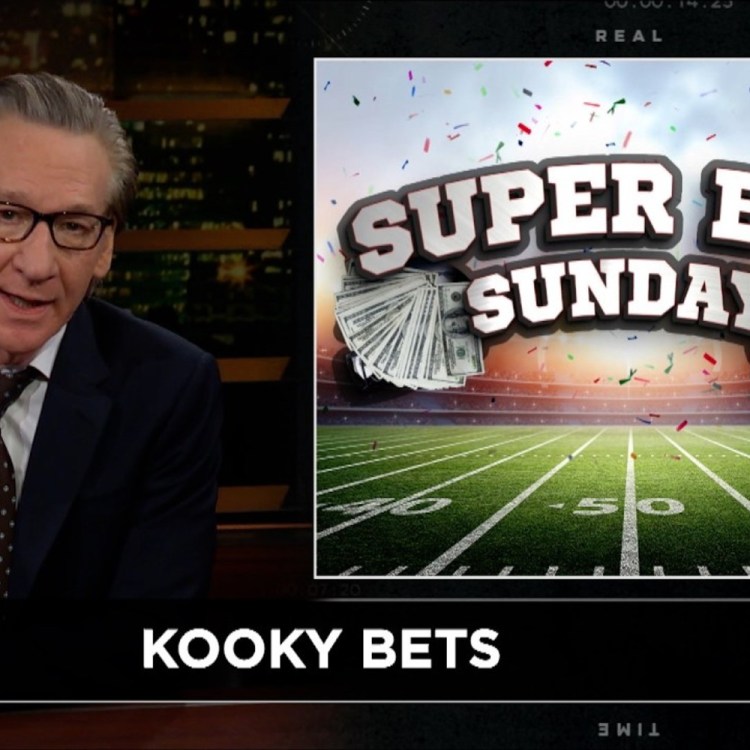Toby Huss is, like, totally hot right now. The longtime character actor is in not one but two prestige shows airing right now: Fatal Attraction on Paramount+, in which he plays an investigator, and HBO’s Watergate farce White House Plumbers. He has also popped up recently in Weird, the off-the-wall “Weird Al” Yankovic movie, Ana De Armas’ Blonde, and even played Hugh Hefner in Peacock’s Angelyne series. In short, Huss is working a lot right now.
That suits him just fine, though. The longtime actor has been working pretty steadily ever since the early ‘90s, when he first pounced into the collective kid consciousness as Artie, The Strongest Man In The World on Nickelodeon’s The Adventures Of Pete And Pete. Fans still stop him on the street to talk about that role, just like they do about his notable turns on Seinfeld, King Of The Hill and Reno 911!
InsideHook talked to Huss about getting recognized on the WGA picket line, why he rarely auditions anymore and how his life has changed over the course of his 30-odd years in Hollywood.
InsideHook: You are working on a lot of stuff lately, including both Fatal Attraction and White House Plumbers. You’re a great actor, but do you think the uptick in scripted programming over the past decade or so has affected the amount of good roles out there? There’s something like 500 scripted shows being made every year now, and not too long ago it was something like 300.
Toby Huss: I’m working now more than I used to. I’d like to attribute some of that to me being a better actor than I was 20 years ago.
I think everybody’s had a chance to get more work. The quantity is definitely there, and the quality, by and large, has also gone up too, I think, because there’s a lot more room for divergent points of view than there were 25 years ago. You can really see a bigger array of shows and concepts, and there’s a difference in who they’re casting to and whose voice they’re letting in, too.
I think that because there are so many shows, there are a lot of different gatekeepers, when before there were just three or four different gatekeepers and they would only allow things that they thought reflected them. They were largely wealthy white folk, too.
With something like Fatal Attraction, you could say “oh, that’s just a remake of some old IP,” but because there are new voices and new experiences behind it, they are actually doing something very interesting with that show, which is great, too.
For me, there’s nothing wrong if you want to do a painting called “The Last Supper.” If you want to do your take on it, then go for it. I don’t think anything is sacrosanct as long as it’s a different take on it, and our Fatal Attraction is definitely a different take on it.
What do you love about working on that show?
The people are pretty smart, and they’re all pros. It was nice to work on a show that has a bunch of pros on it, and that includes everyone from Alexandra Cunningham, the showrunner, to me and the other actors. I think I might be the weak link there, actually. But everybody was pretty smart and did their jobs, and that was kind of great.
I do think that the amount of shows has sort of changed the idea of acting as a profession in a way. I mean, it did until the WGA strike and then when the SAG strike happens or whatever, and then when robots takeover our lives.
But until the time robots take over our lives, I think it for me, it was pretty refreshing to have a job that was like a regular job. It wasn’t the most sparkly thing in the universe. It was a solid, good job, and that’s what I liked about it.
What are your feelings about what’s going on with the WGA strike? It does feel like they’re smart to get ahead of the aforementioned robots and whatever else is coming down the pike in years to come. Media has already changed so much in the past few years.
I think that ChatGPT is changing things, and I also think that consolidation of the motion picture industry reflects the consolidation of big business. There are fewer and fewer giant corporations that own everything, and they by and large think they can dictate what the masses get paid, how many hours they work, and the conditions that they have to work under, and I think that’s a sickening aspect of the unfettered, unchecked capitalism we have going on right now.
It also feels scary as a creator or as an actor to realize now that the thing you made for — let’s say — Netflix that you thought would live forever can just up and disappear. That’s on top of the fact that writing something incredibly popular on Netflix doesn’t net you residuals like it would on a network, but it all just feels very ephemeral, which is scary. Your work can just up and disappear forever.
It’s like it was back in the ‘70s. That physical 35 millimeter print of your movie was somewhere, but unless they showed it at the film forum on a Saturday afternoon in August, you weren’t going to see that thing. You forget, it was hard to see the Seven Samurai, it didn’t happen all that often.
I mean, are they obligated to have some giant computer bank where they store all this stuff, because it’s gonna cost money to store? Because, look, I can understand that, but it is a strange paradigm to live in where you work and make this thing and all these other artists are in on it from writers to camera people to lighting folk, to wardrobe, and it goes away. It’s a strange thing that we have going on now.
‘Weird Al’ on the Death of the Album and Keeping Polka Alive
Four decades in, “Weird Al” Yankovic reflects on outlasting the people he parodies.You’re in White House Plumbers right now, which is directed by David Mandel, who you worked with on Veep and who worked on other things you’ve been on like Seinfeld and Curb Your Enthusiasm. How often are you getting calls for jobs from people that you’ve worked with before, whether it’s David Mandel, Mike Judge, or whoever just calling to say, “Hey, we had fun doing something before. Can you come work on this new thing?”
It’s happening more now. Part of that is attrition. I’m getting older, and some of the guys who are my age, when they were 45 they went, “Jesus, I’m not making any money,” which is what I should have done but I stayed with it. The more sensible actors said, “Let me get a different kind of job so I can support my family and not have to worry about acting so much.”
Have there been inflection points in your career where you’ve worked on a well-received project and then seen an uptick in roles or interest? I’m wondering if that happened after something like Halt And Catch Fire, which maybe wasn’t widely watched but that was critically adored and much-admired within the industry.
I think that happened with Halt And Catch Fire, but it also initially happened after The Adventures Of Pete And Pete. There’s little hiccups here and there, but I think that’s similar to everybody’s career, and you’ll have moments where, for instance, you would think there would be a little bit of an uptick after the Al Yankovic movie, but then it’s just not just a thing.
I think it’s more about being known as a pretty reliable actor who can do a lot of different things, and it’s just increasing the pool of people that know you do that. So it’s not one big jump. I’ve never been in one movie that blows up. I’ve never been in the Stranger Things universe or the Game Of Thrones universe where they went, “Oh my God, who are these people? We’ve got to make space for them going forward. They’re incredible!” I’ve just been in interesting, funky things that critics liked and people liked, and ever since I’ve sort of popped up here and there.
How did things change after Pete And Pete? You left the show in season two. Was that your call?
Yeah, I was doing promos for MTV and then I got a call from an agent in LA that I signed with, and so I started working with them and then roles came after that.
As far as leaving, yeah, that was my idea. Artie was my character that I performed even before the show, and after I did two years of the show, I thought, “Well, there’s going to be a third year and I love the people working on the show like Will [McRobb], Chris [Viscardi], Michael [Maronna], Danny [Tamberelli], and Allison [Fanelli], but maybe I should stop acting with children and do some adult stuff.” So I just decided to make the move.
And you know, it’s a toss-up of whether it was the right move or not, but it was the move. Who knows, maybe another year would have been great. The show was certainly still good for another year. I mean, it was still a viable, sweet show for another season, and I think it could have gone for a few more years to be honest, but you make these decisions and hope for the best.
Didn’t [legendary screenwriter] William Goldman say something like that in Adventures Of The Screen Trade, like that if he would have said yes to everything he said no to movie-wise, everything probably would have worked out the same? You don’t really know. That’s the thing.
I can read the script for Halt And Catch Fire and go, “Oh, my God, this is a fantastic show. It’s so well-written, and the cast and the directors are really great. People have got to see it! This is going to be a great show,” and then nobody watches. People just say, “We’re not going to watch it now, but give us five or six years, and then we’ll watch it.” What are you gonna do? It’s the fickle nature of show business, I think.
They used to talk about that on the Nerdist podcast. Basically, they’d say the odds of even getting made in Hollywood were a million to one, and the odds of something being good and/or well-received were even less than that. There are just so many places where things can go awry, or an excellent script or actor can slip through the cracks.
I think it’s hard for people to admit that randomness really controls big swaths of their life. You might meet somebody walking down the street that changes your life, and it’s like, “Well, you didn’t do anything to allow that person into your life. You literally bumped into them on the street. In New York.” It’s strange.
I think by the same token, you can really have a beautiful script, and it can be completely overlooked. There’s jobs that I’ve gotten where I go, “Ooh, this thing is awful,” and then people love it and you go, “Wow, I don’t know how anything works anymore.” It’s crazy.
I thought people would really respond to Halt And Catch Fire, and I think smarties did, but I thought it would really appeal to a mass audience and it didn’t. So I just have no idea what I’m talking about. I’m just a goofball running through it all.
Beyond that, it’s that maybe that person you met or worked with or bumped into once 20 years ago then comes back into your life in a significant way, whether they’re working on something you want to work on or maybe they’re a friend of someone you’re dating. You just never know.
Yeah, there’s a guy Eliot Rockett who’s a DP that I worked with on an independent film years and years ago,probably around ‘91 or something like that. Anyway, we just had a reading of the new Ti West picture MaXXXine that’s coming out and that they’re shooting now and Eliot was there. I was like, “Son of a bitch. There’s Eliot Rockett after 30-plus years.” I mean, he’s been around and he’s shooting stuff all the time, like he shoots Ti’s stuff, but we just haven’t crossed paths. And then the reason why we crossed paths now, all these years later, was just chance..
Speaking of years later, King Of The Hill is coming back. You were a bit part of that show, voicing Cotton Hill and Khan Souphanousinphone Sr, but are you involved in it going forward? Cotton’s dead, so not there, but are you doing Khan?
No, I’m not going to be doing Khan and that’s as it should be. They’ll get a Laotian actor to play him and I’m more than fine with that. That’s great.
Will you be coming back in any other way?
You know, I don’t know. They haven’t reached out yet. If they want me, though, they can give me a ring and we’ll see what happens.
They’re good people. I love those guys and it was such a gift to be able to do that show for all those years and sit in a room and watch Mike Judge and Stephen Root and Pamela Adlon and Kathy Najimy act every day. At least once a week I got to watch them at the read-through and then I’d watch them a few days later while Stephen Root and Pammy got to go at it in the recording booth, and that was pretty fun too. I had a ringside seat to some really beautiful, funny stuff.
It’s great that there were read-throughs for that show, because I feel like sometimes, at least now, working on an animated show can be a very isolated experience for a voice actor.
They don’t do read-throughs for much anymore. I just did a few episodes of the new Chuck Lorre show called How To Be A Bookie, though, and we had read-throughs. We’d read two or three scripts at a time, and that was strange. It was great, but it was an anomaly.
You recently had a solo art show in LA, and from what I’ve read, you did a lot of painting during the pandemic. What do you love about painting and about photography, which you’re also passionate about?
There’s two things: The first is that it’s all me. I like acting because it’s a really collaborative process and it’s really wonderful, but it’s also nice to be in control of not only the emotional content, but the expression of that so if I’m feeling something or I’m thinking about something, I can paint it and it’s all mine. I don’t have to run it through anybody and I don’t need to improvise with anybody. It’s just me. Also, it’s a great emotional sounding board.
Last question: You’ve been in so many things. I think you have more than 160 credits on IMDb. What are you recognized for the most?
It’s funny, I was just out on the WGA line last week and a kid came up and went, “Hey, you’re Toby Huss.” He was like a 25-year-old guy, and I said “I am,” and he said, “You were that sportscaster in Bedazzled!” I was like, “Oh shoot, that’s right! I was!,” and he said “I really love that one.” It’s like, “Okay, thanks man.”
It’s a strange thing. Usually people don’t recognize me from Artie. It’s usually Seinfeld or something, but I’ve heard from more than one person about loving Vegas Vacation where I just did that little small part where I was the Sinatra impersonator selling fake IDs. That was a movie that fathers here and there shared with their kids, I think. It was their little movie that they would go see. It was slightly naughty, but it was really fun and you could bring a kid to it, so it was a sort of bonding moment. So they remember me from that, because it was a bonding moment with their parents or their dad.
That Sinatra impression has served you well. You’ve been doing a version of that since the ‘90s on MTV, and you even got to do it on Feud a few years back.
That was fun. They gave me a nice wig and I got a really nice call from Alec Baldwin after that out of the blue. He found my number somewhere and called to say, “Really great job.” I was like, “Oh, thanks, man,” and he was like, “You really got the anger. You got the rage.”
I mean, people like to deify Frank, but we’ve got to remember he was also a mean booze bag. It’s like, come on, let’s fill out the human being. You know, people have these heroes and they’ll say “this is a golden guy,” but I always like to dig down. That’s kind of my job as a character actor. I dig down in there and find the darkness to that person or find the sort of frayed edges. That’s always more interesting to me. Those frayed edges are the things that really identify the person.
This article appeared in an InsideHook newsletter. Sign up for free to get more on travel, wellness, style, drinking, and culture.
